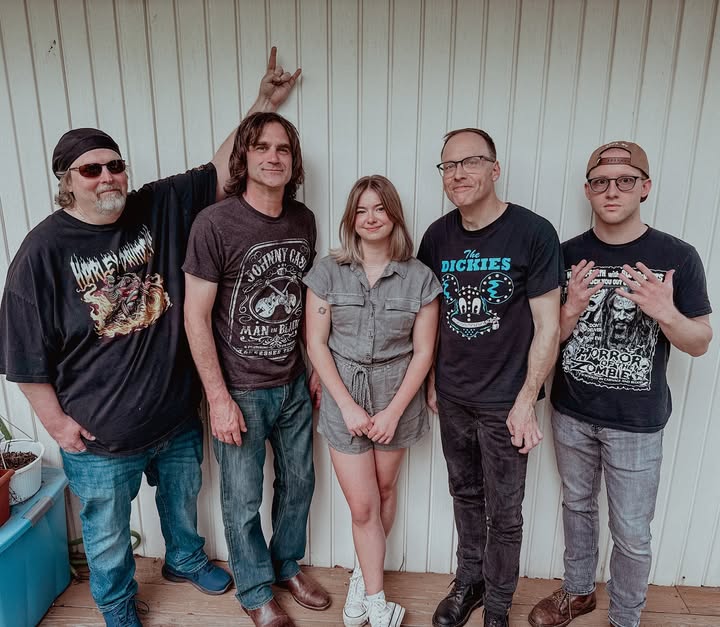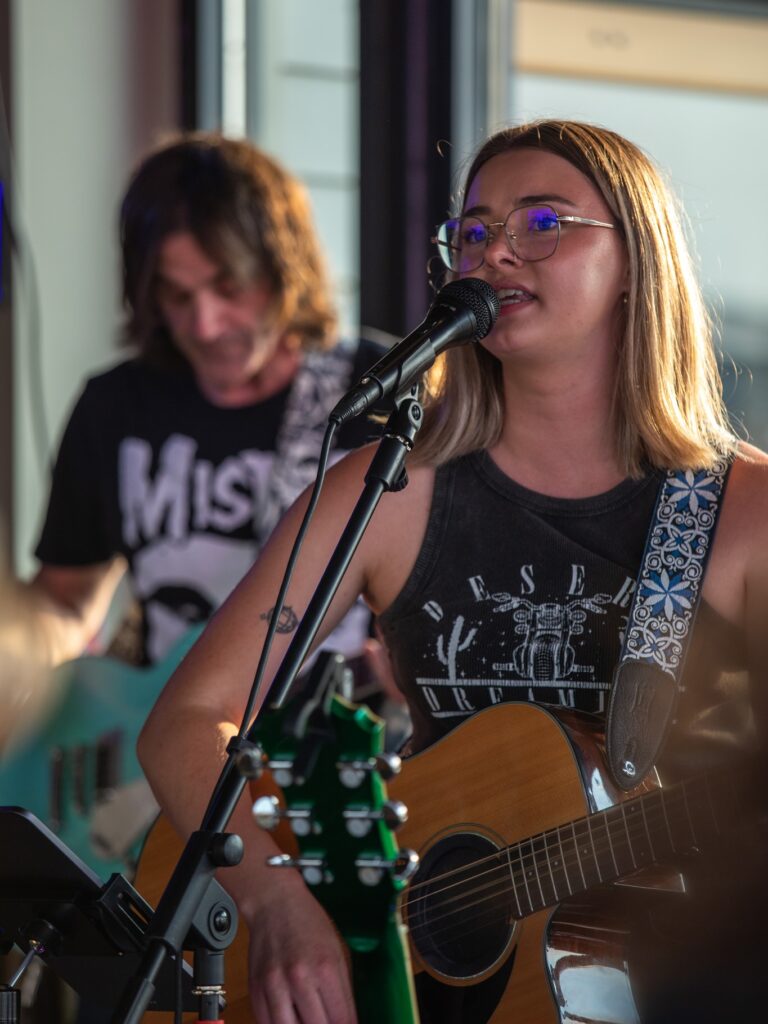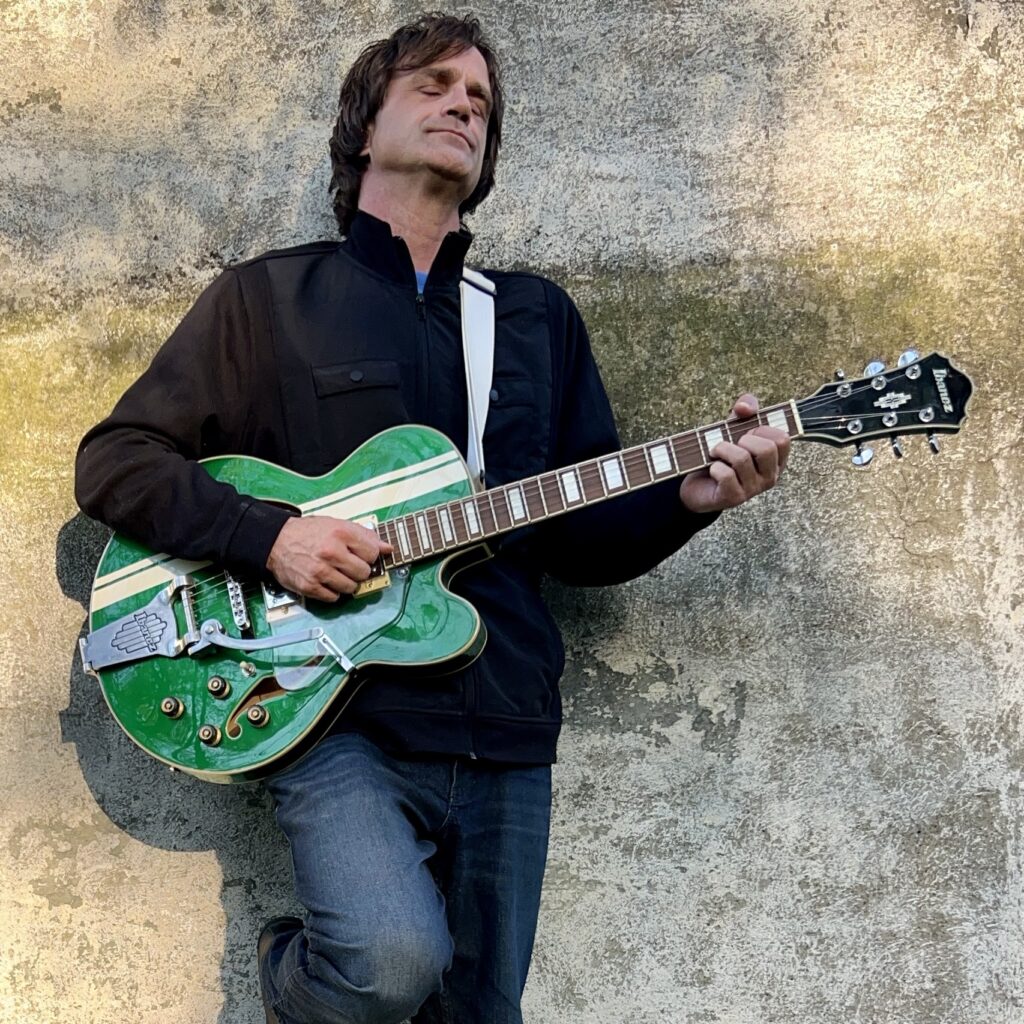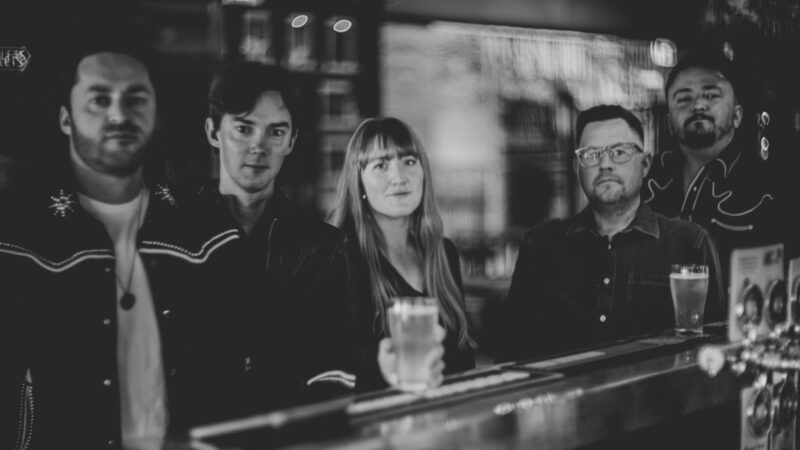Something genuine like Maverick Smith

“Most people are still craving something genuine“, says the producer, guitarist (and vocalist) of the fab five band Maverick Smith, straight from West Virginia, in the United States, to the world. In the midst of a music market that is surrendering to Artificial Intelligence every day, the band resists placing its main strength in its compositions and the experimentalism of diverse genres ranging from rock to country.
We’re a multigenerational band with different backgrounds, influences, and skill sets, and that diversity naturally shows up in the songs.
Sean Boynes – Maverick Smith
With a debut album and two singles already released, Maverick Smith now presents the hyper-creative “We make fire, they make smoke“, a title that, according to Boynes, suggests a punk attitude towards the charlatanism propagated especially by social media these days. “The title pushes back against a certain kind of illusion — the kind where people build these self-made ivory towers and crown themselves experts, tastemakers, or thought leaders, but they’re really just selling air“, he explains.
For those who have followed the band since the beginning, the new album brings the novelty of singer Paige Bosic’s greater participation in the lyrics, highlights Boynes, who also reveals that the support of Brazilian fans was fundamental for Maverick to get this far: “It was Brazilian fans who showed up first for For Streams, who pushed the songs into algorithm territory, who shared it enough to give us the momentum to keep going”.
As you can see, dear Boynes, we, the Brazilians, are also on this complicated business of making fire.
2 5 Things about Maverick Smith (by Sean Boynes)
RC: “We make fire they make smoke”. I would like to start the interview by talking about the title of the album, which sounds somewhat threatening. Are you referring to someone or some group in particular? Why this comparison?
MS: The title pushes back against a certain kind of illusion — the kind where people build these self-made ivory towers and crown themselves experts, tastemakers, or thought leaders, but they’re really just selling air. It’s about the noise we mistake for meaning, the branding we confuse for truth. We’re surrounded by so much sameness — content made to sell itself, not to connect. And that creates this sense of boredom and disconnect, like we’re all being fed the same story with different packaging.
But here’s the thing: the more you talk to real people — your friends, your family, folks at shows — you realize that illusion is loud, but it’s small. Most people are still craving something genuine. The positive, the honest, the handmade — it’s still in us, and it can win. The mirage is that we have to accept the version of change we’re handed, when really, we can live in the change we make.
RC: Not only the melodious vocals but even Maverick’s lineup reminds me a lot of 10,000 Maniacs. Even though you consider yourselves a “rock band”, do you admit these influences of pop, indie and even alt.country in the sound you make?
MS: First off, thanks for the 10,000 Maniacs comparison — that’s high praise and deeply appreciated.
Candidly, we don’t think about genre at all when we’re writing. We’re a multigenerational band with different backgrounds, influences, and skill sets, and that diversity naturally shows up in the songs. And because we often bring in collaborators — musicians who drop in and play or sing on a track — the shape of a song can shift in the best possible way. That openness is part of our process.
We’re not chasing a sound or trying to land on a playlist. The only rule is: does it make sense to us? Is this an album we’d want to sit down and listen to all the way through? If the answer’s yes, we follow it. It’s less about constructing songs and more about catching them. The universe throws us an idea, and if we’re lucky enough to catch it, we ride it wherever it wants to go. Genre just isn’t part of the conversation.
RC: Let’s talk about the lyrics of this new album. Starting with “Sinking Feeling” it seems to me that a common theme is loneliness, depression, broken hearts and relationships. Does this inspiration for so many deep lyrics come from your experiences or can we say that there is a kind of “lyrical self” that guides the compositions?
MS: The lyrics on this album really feel like a week in the life — moments of uncertainty, flashes of hope, late-night overthinking, and quiet clarity in the morning. Some of it came from things we were personally working through, and some of it came from just being present and observing what people around us were going through.
What really changed the game was Paige stepping in as a songwriter. Her writing brought this grounded, deeply relatable energy to the album — the kind of truth that doesn’t hide behind metaphor. That opened the door for a more collaborative approach. We wrote some of the songs together, and we also had contributions from Jim Courtney, our drummer, who always seems to find a new or counter melody that fits perfectly.
So no, we didn’t invent a fictional voice or character to guide the album — the lyrics are just honest reflections of where we were emotionally while making it. Different days, different moods, different people weighing in. That mix is what makes it feel open to everyone.
RC: In addition to being musicians, you are also activists. Tell us what it means to be part of an organization like the Harmony Health Foundation today.
MS: Harmony Health focuses on improving access to care — especially for people with disabilities and others who are often left behind by the healthcare system. That includes oral health, mental health, and support for families navigating real barriers to basic care. They work directly with state agencies, providers, and communities to make sure care isn’t just available, but actually reachable and respectful.
For us, supporting that work is non-negotiable. A portion of all Maverick Smith merch and album sales goes directly to Harmony Health, and there’s a donation link right on our website for anyone who wants to give directly. We’re genuinely grateful that Harmony Health involves us in their mission. A lot of us in the band have personal connections to the kind of care they fight for, so being able to contribute — even in a small way — means a lot.
RC: Since this interview is being read especially in Brazil, I would like you to tell us something about our culture, arts in general that you appreciate.
MS: Well, you love rock ’n’ roll — and in the purest sense of love. That Joey Ramone way of loving it. That alone kind of etched Brazilians into our hearts from the start. Brazil is full of energy and soul, and you don’t just listen to music — you live it. From classic artists like João Gilberto and Caetano Veloso to newer indie bands like Boogarins, there’s this raw emotion, rhythm, and honesty that cuts through. It’s the kind of thing every songwriter — no matter where they’re from — can learn from.
But more than that, we owe Brazil. Without you, there’s no second album. It was Brazilian fans who showed up first for For Streams, who pushed the songs into algorithm territory, who shared it enough to give us the momentum to keep going. That kind of support wasn’t just seen — it was felt. You gave us belief at the exact moment we needed it most.
What we’ve come to love even more than the music is the people. There’s this openness, a realness, a sense of community that’s impossible to fake. You don’t just support music — you carry it, celebrate it, and make it matter. That’s something we’ll never forget. And we’d be honored to bring this band to you in person one day.






